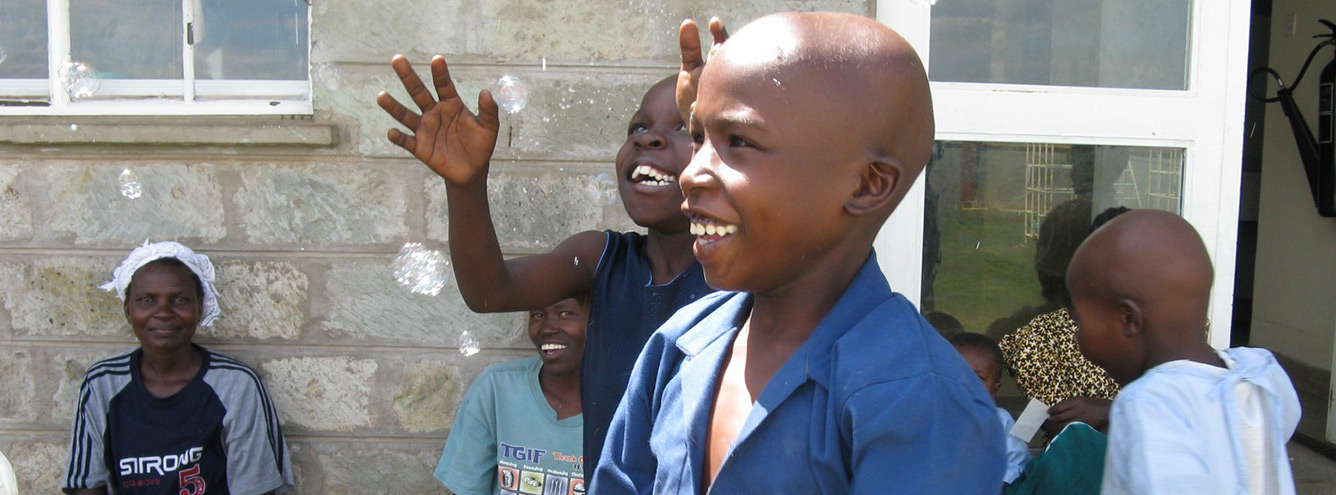Most children with curable eye cancer in Africa die or become completely blind.
More than 2,000 children develop retinoblastoma each year across Africa, a continent largely outside the global oncology community. In comparison, each year there are about 280 new diagnoses in the USA, 45 in the UK and 23 in Canada. Survival is estimated to be less than 10% in Africa, compared with survival above 97% in the USA, UK and Canada.
Major Challenges to Survival
The majority of children with retinoblastoma in Africa today are diagnosed at an advanced stage, and many receive no treatment. Major challenges to survival are:
- Delayed diagnosis
- Delayed, inappropriate, inconsistent or incomplete medical care
- Overwhelming burdens on the family
Delayed diagnosis
Awareness about childhood cancer is almost non existent. This leads to harmful misconceptions about symptoms, treatment and its side effects.
Children are often not diagnosed until the cancer is very advanced and chance of cure is remote. This perpetuates beliefs that western medicine does not work and cancer in children cannot be cured.
Untreated eye cancer that has spread beyond the eye mutilates the child terribly, causing appalling suffering.
Delayed, inappropriate, inconsistent or incomplete medical care
Medical care is hindered by the scarcity of published literature about appropriate retinoblastoma management in developing countries, and limited access to existing literature. Few professional development opportunities also limits knowledge and agreement on the best way to treat children.
The financial burden of medical bills causes many families to delay or abandon treatment and follow up, leading to inconsistent and incomplete care. Abandonment of therapy is the primary cause of treatment failure among curable children in Africa.
Overwhelming burdens on the family
Lack of family support to address practical, emotional, financial and social burdens quickly erodes hope.
Some parents are forced to abandon their child in the hospital when they cannot pay their medical bill.
Many families have long, expensive journeys to a specialist hospital for care. Often they do not have an affordable safe place to stay near the treatment facility, exposing them to danger and illness when they are already physically vulnerable and emotionally drained.
Families who were relatively financially comfortable before their child’s cancer diagnosis often find themselves pushed into crippling poverty due to these burdens and the lack of support.
Families are often separated for months or even years. The affected child, siblings, parents and other family members often suffer emotionally long after treatment ends. Many marriages fail.
Without hope, there is only waiting for death to come, praying it will be swift and without pain. Watching my child suffer, unable to help, is agony. If we had only got to the treatment sooner…
Sharing Hope, Saving Lives
Abandonment of treatment and death from delayed diagnosis is almost unheard of in developed countries, where the main focus is preserving vision. The high cure rates achieved in resource-rich countries can be equally achieved in Africa.
Building awareness, local capacity to promptly diagnose and treat retinoblastoma, and compassionate, practical family support, will save many thousands of children. This is the mission of Rati’s Challenge.


